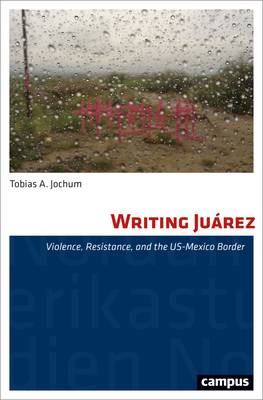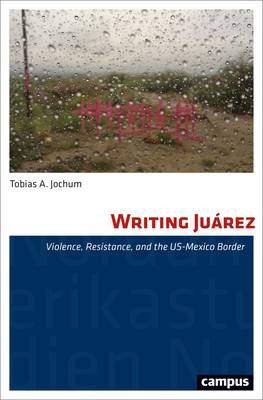
- Retrait gratuit dans votre magasin Club
- 7.000.000 titres dans notre catalogue
- Payer en toute sécurité
- Toujours un magasin près de chez vous
- Retrait gratuit dans votre magasin Club
- 7.000.0000 titres dans notre catalogue
- Payer en toute sécurité
- Toujours un magasin près de chez vous
Description
A rigorous reflection on recent literary accounts of violence at the US-Mexico border. Writing Juárez is a rigorous reflection on recent literary accounts of violence at the US-Mexico border. The book foregrounds questions of political resistance and representational ethics. Adopting a truly hemispheric approach, the study brings together Mexican anthropologies of violence, critical geography, political theory, continental philosophy, and postcolonial media and affect theory to examine literature from both sides of the border. Jochum's survey of the border town's transnational imaginary hones in on three seminal books, each emblematic for a particular model, author position, and historical inflection point. Against a long trajectory casting Ciudad Juárez as an overdetermined space of abjection, Tobias A. Jochum shows how a proliferation of creative, critical, and civic responses to the brutal effects of neoliberalism and militarization since the 1990s has generated new epistemologies and conceptual vocabularies that speak to a larger crisis of Modernity far beyond the confines of the neoliberal borderlands.
Spécifications
Parties prenantes
- Auteur(s) :
- Editeur:
Contenu
- Nombre de pages :
- 420
- Langue:
- Anglais
- Collection :
- Tome:
- n° 42
Caractéristiques
- EAN:
- 9783593515632
- Date de parution :
- 09-01-26
- Format:
- Livre broché
- Format numérique:
- Trade paperback (VS)
- Dimensions :
- 140 mm x 216 mm
- Poids :
- 453 g

Les avis
Nous publions uniquement les avis qui respectent les conditions requises. Consultez nos conditions pour les avis.






